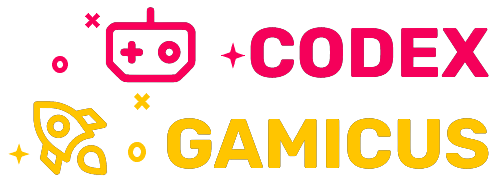Bubble Bobble (バブルボブル Baburu Boburu) is an arcade game by Taito, first released in 1986 [1] and later ported to numerous home computers and game consoles [2]. The game, starring the twin Bubble Dragons Bub (Bubblun) (バブルン Baburun) and Bob (Bobblun) (ボブルン Boburun), is an action-platform game in which players travel through one hundred different stages, busting and pushing bubbles, avoiding enemies and collecting a variety of items. The game became very popular and led to a long series of sequels and spin-offs.
Game mechanics
In the game, each player controls one of the two Bubble Dragons, Bub and Bob. The player can move along platforms, as well as jump from one platform to that above, or to the side, in a similar way to most platform games.
The player can also blow bubbles. These can trap enemies, who are defeated if the bubble is then burst by the player's spiny back. The bubbles also float for a time before bursting, and can be jumped on, allowing access to otherwise inaccessible areas. Players progress to the next level once all enemies on the current level are defeated.
Enemies turn "angry" – becoming pink-colored and moving faster – if they are the last enemy remaining, escape from a bubble after being left too long, or a certain amount of time has been spent on the current level.
After a further time limit expires, an additional invincible enemy appears for each player, actively chasing them using only vertical and horizontal movements. These do not need to be defeated to complete the level, but disappear once a player's life is lost.
Contact with an enemy is deadly, resulting in the loss of a life.
The game's music was written by Japanese team Zuntata. Peter Clarke and David Whittaker have arranged music for home computer ports (some versions have a new intro music by Whittaker).
Ports
Template:Prose The popularity of Bubble Bobble led Taito (or its licensees) to port to many home computers and video game consoles. Ports of the game were released for the Commodore 64, Sinclair ZX Spectrum, Amiga, Atari ST, MSX, Amstrad CPC, Sharp X68000, PC (MS-DOS, 1989 and 1996), Apple II, FM Towns Marty, Sega Master System, Game Boy, Game Boy Color, Game Boy Advance, Nintendo DS, PlayStation, Sega Saturn, Nintendo Entertainment System, Famicom Disk System, Sega Game Gear, mobile phone (Sprint PCS), Texas Instruments TI-8x series of calculators[3] and UltraCade's Taito Arcade Classics. A version also exists for the BBC Micro on public domain though never officially released.
In 1996 Taito announced that they lost the original source code [4]. As Probe Entertainment was in charge of the home conversions, Taito sent them a Bubble Bobble arcade PCB so they could play the original game and reproduce its mechanics. This led to the release of Bubble Bobble also featuring Rainbow Islands for Saturn, PlayStation and PC (MS-DOS) in 1996.
The original Game Boy and Game Boy Color versions have a Moon Water storyline, and are known as Bubble Bobble, and Classic Bubble Bobble respectively.[5]
In 2002, a homebrew version for the TI-83 graphing calculator was released.[6] Template:Computing platform requirements
In October 2005, a version was released for the Xbox, PlayStation 2, and PC as part of the Taito Legends compilation of classic arcade games.
At the end of 2006 a new port for mobile phones in Europe and Japan was released.
On December 31, 2007, the NES version of Bubble Bobble was released on Nintendo's Virtual Console service for the Wii. It costs 500 Wii Points, the equivalent of US$5.
Reception
Mean Machines gave the Game Boy port of the game a score of 91%, noting that while some changes had been made the game played identical to the original arcade port and "provides much addiction and challenge".[7]
Legacy
Bubble Bobble inspired many sequels, including:
- Rainbow Islands: The Story of Bubble Bobble 2 (1987)
- Rainbow Islands Extra Version (1988)
- Parasol Stars (1991 originally released for PC-Engine/TurboGrafx-16, converted for NES (Europe only), Amiga, Atari ST, and Game Boy (Europe only)
- Bubble Bobble Part 2 (1993 Nintendo Famicom, Nintendo Entertainment System, Game Boy)
- Bubble Bobble II (World) / Bubble Symphony (Europe, Japan, U.S.) (1994 Arcade, Sega Saturn (Japan only))
- Bubble Memories - The Story of Bubble Bobble III (1995 Arcade)
- Rainbow Islands - Putty's Party (2000 Bandai Wonderswan)
- Rainbow Islands: Towering Adventure (2009 WiiWare, Xbox Live Arcade)
- Bubble Bobble Plus! (2009 WiiWare) aka Bubble Bobble Neo! (2009 Xbox Live Arcade)
References
- ↑ Bubble Bobble Video Game by Taito (1986). klov.com. Retrieved on 2009-10-04
- ↑ Bubble Bobble Games. mobygames.com. Retrieved on 2009-10-04
- ↑ Bubble Bobble 8x. Retrieved on 2009-07-18
- ↑ Bubble Bobble video game, Taito Corp. (1986). arcade-history.com. Retrieved on 2009-10-04
- ↑ Bubble Bobble StrategyWiki. strategywiki.com. Retrieved on 2009-10-04
- ↑ http://www.dwedit.org/bubblebobble/
- ↑ Rignall, Julian (August 1992). "Bubble Bobble review". Mean Machines (23). http://www.meanmachinesmag.co.uk/review/386/bubble-bobble.php. Retrieved 2009-06-04.
External links
- Bubble Bobble at Museum of the Game
- Bubble Bobble at Arcade History.com
- Bubble Bobble wiki guide at StrategyWiki
- Bubble Trouble A detailed analysis of the arcade version, as published in Retro Gamer magazine.
- Bubble Bobble Items Compiled by Stephen Tjasink and Paul Rahme.
- Bubble Bobble Series at the Open Directory Project
ca:Bubble Bobble fr:Bubble Bobble ko:버블 보블 he:באבל בובל nn:Bubble Bobble pt:Bubble Bobble fi:Bubble Bobble sv:Bubble Bobble zh:泡泡龙 (1986年游戏)
